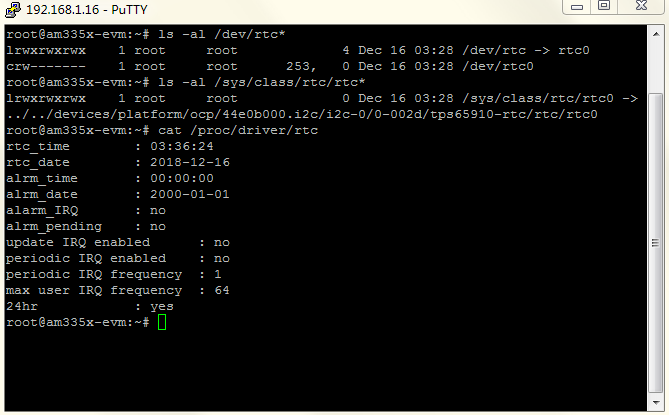Other Parts Discussed in Thread: TPS65910
Hi,
Chip: am3352
System: rtLinux 4.14
Sdk version: v05.02
The system clock and rtc clock reading inconsistency, we rtc use the chip as dps65910,
The script detection time is 20min, the error is about 10 seconds, please help us to view.
root@am335x-evm:~# ls -al /dev/rtc*
root@am335x-evm:~# ls -al /sys/class/rtc/rtc*
root@am335x-evm:~# cat /proc/driver/rtc
How to overcome this issue ? Please provide me the guidance.



